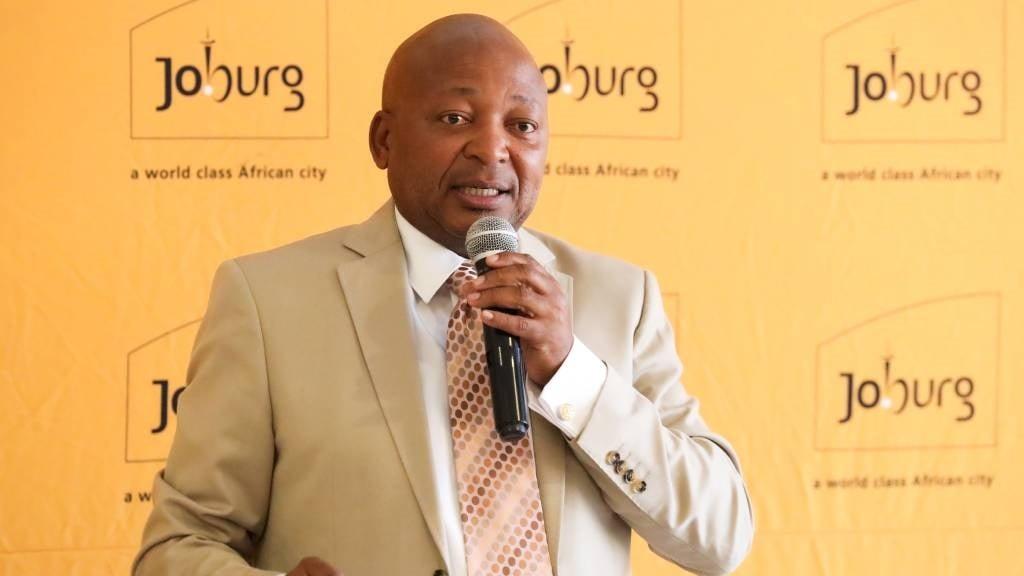Africa-Press – South-Africa. The chief executive of an NGO fighting homelessness has lamented the shortage of shelter space for the poor in Johannesburg.
Mary Gillett-de Klerk, the head of the Joburg Homeless Network, says there aren’t enough City-owned shelters in the metro.
“There are four City-owned shelters in Joburg. And that’s not enough. When people are being evicted, the City should provide alternative accommodation. You can’t evict them without providing alternative housing,” said Gillett-de Klerk.
City of Johannesburg mayoral committee member for transport Kenny Kunene thrust the issue of poor people using abandoned buildings for shelter into the spotlight when he took to the streets on Sunday and Monday.
Kunene, who was the acting Johannesburg mayor at the weekend, was accompanied by fellow committee members and law enforcement officers when they raided dilapidated buildings in Windsor East and Hillbrow.
The former nightclub owner has been widely criticised by human rights organisations for his actions.
Gillett-de Klerk said that before evicting people, warnings needed to be issued.
“There are many people in Joburg who are evicted daily. Section 26 [of the Constitution] says that the state is to provide adequate housing to people, but that’s not the reality. However, civil society, especially NGOs, end up providing shelter to people,” she said.
Kunene was acting mayor, because the recently-elected mayor, Kabelo Gwamanda, was away on business, when he initiated the raids.
However, speaking to eNCA on Tuesday, Kunene maintained he was unapologetic about the raids.
He said:
Louise du Plessis, the land and housing programme manager at Lawyers for Human Rights, said the eviction issue in Johannesburg was ongoing.
Du Plessis said what Kunene was seen doing on Monday in Hillbrow was “disgusting”.
“Except for legal issues, we [can] find it disgusting that anybody can act without empathy toward vulnerable people.
“If he is evicting people without a court order or even just entering their property, it is a crime. The court has repeatedly determined how people must be relocated or evicted. If he has damaged their property, it is another crime,” she said.
Du Plessis claimed Kunene allegedly said the City had a court order which was issued in January.
“There are allegations that Kunene said the City had a court order for evictions since January. But why only now did they act on it and issue warnings?” asked Du Plessis.
There have been several groundbreaking court rulings that limit the authorities from simply throwing people occupying abandoned buildings out onto the street.
The Socio-Economic Rights Institute (SERI) released a statement on Tuesday slamming Kunene for launching “unlawful raids” on buildings in Johannesburg.
SERI spokesperson Edward Molopi said Kunene had raided the buildings without any authorising court order.
“SERI is appalled by the recent actions and approach of the City of Johannesburg under the leadership of [the] acting mayor, which are targeted at poor people living in the inner city,” he said.
Molopi said residents of Joburg had experienced similar raids when Herman Mashaba was the mayor.
“These unlawful raids predominantly affect the same people who have previously endured victimisation under different mayoral regimes.
“In response to suffering under former mayor Mashaba’s tenure, the affected residents sought recourse from the Constitutional Court, culminating in the landmark decision in Residents of Industry House and Others vs Minister of Police and Others,” Molopi said.
Want to
discuss hotly debated topics with someone from across the world? Sign up for our global dialogue programme
and get matched for a conversation.
He said ActionSA was unfamiliar with Kunene’s actions and needed more information as to whether proper procedures were followed in the demolition of buildings.
However, he said that when he became Joburg mayor in 2016, the housing backlog was over 300 000 units.
“In the inner city, thousands of people were forced to live in dilapidated and hijacked buildings. The conditions of these buildings often went against the health and safety standards (required for occupation) which exist to protect residents.
“Residents were willing to live in these inhumane conditions as no other options were available. The City nonetheless has a duty to protect residents,” said Mashaba.
He added that under his leadership, the City identified neglected and hijacked buildings to refurbish in partnership with the private sector.
“This required the City to provide residents with temporary alternative accommodation in line with the South African Constitution. It is important to note that proper procedures were followed throughout this process and in cooperation with the relevant authorities and City departments,” he said.
Mashaba said these buildings were given to the private sector to redevelop as mixed-use buildings that include affordable and student accommodation.
Attempts to get comment from the City and provincial departments came to nought as various spokespeople declined to comment, referring News24 to other departments or back to Kunene, who did not respond.
For More News And Analysis About South-Africa Follow Africa-Press






